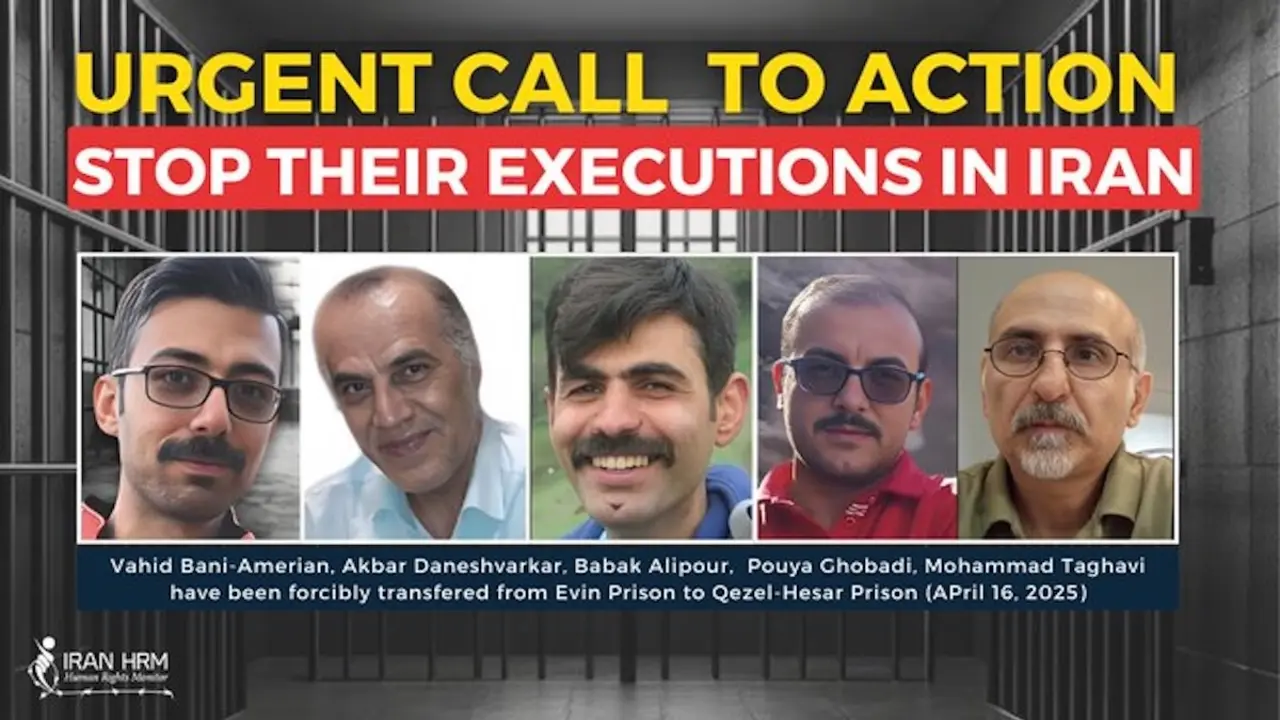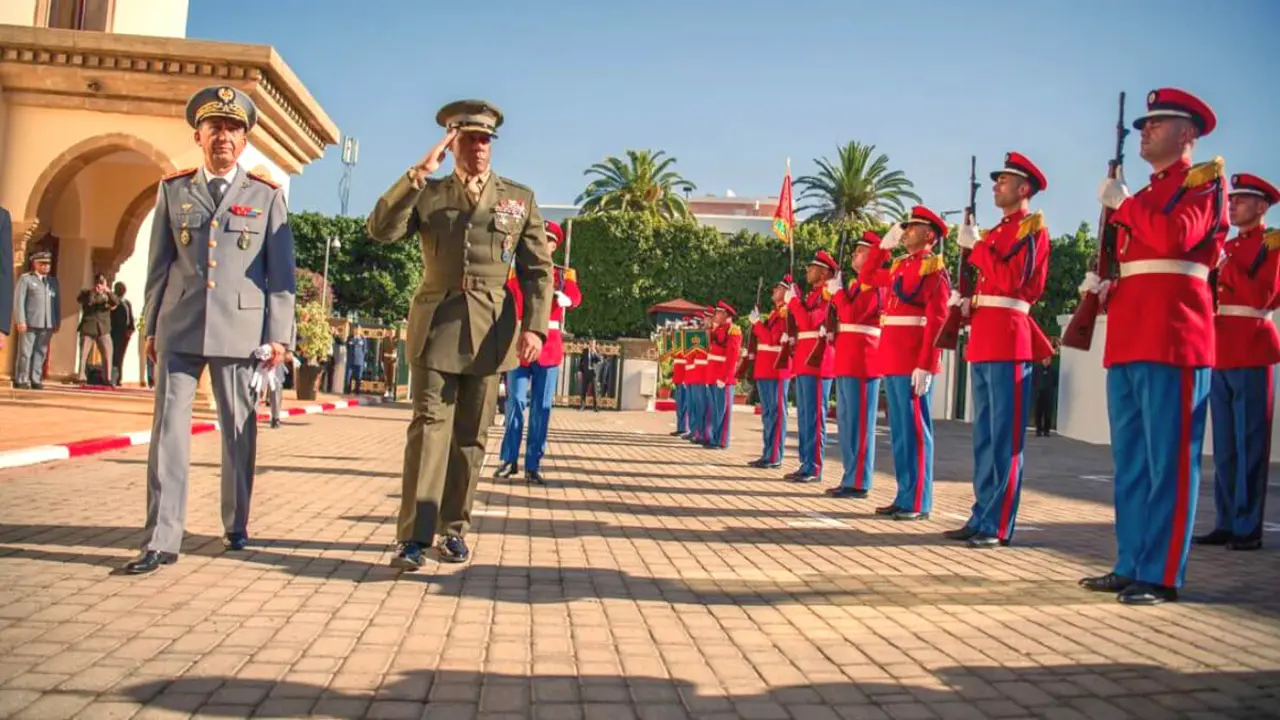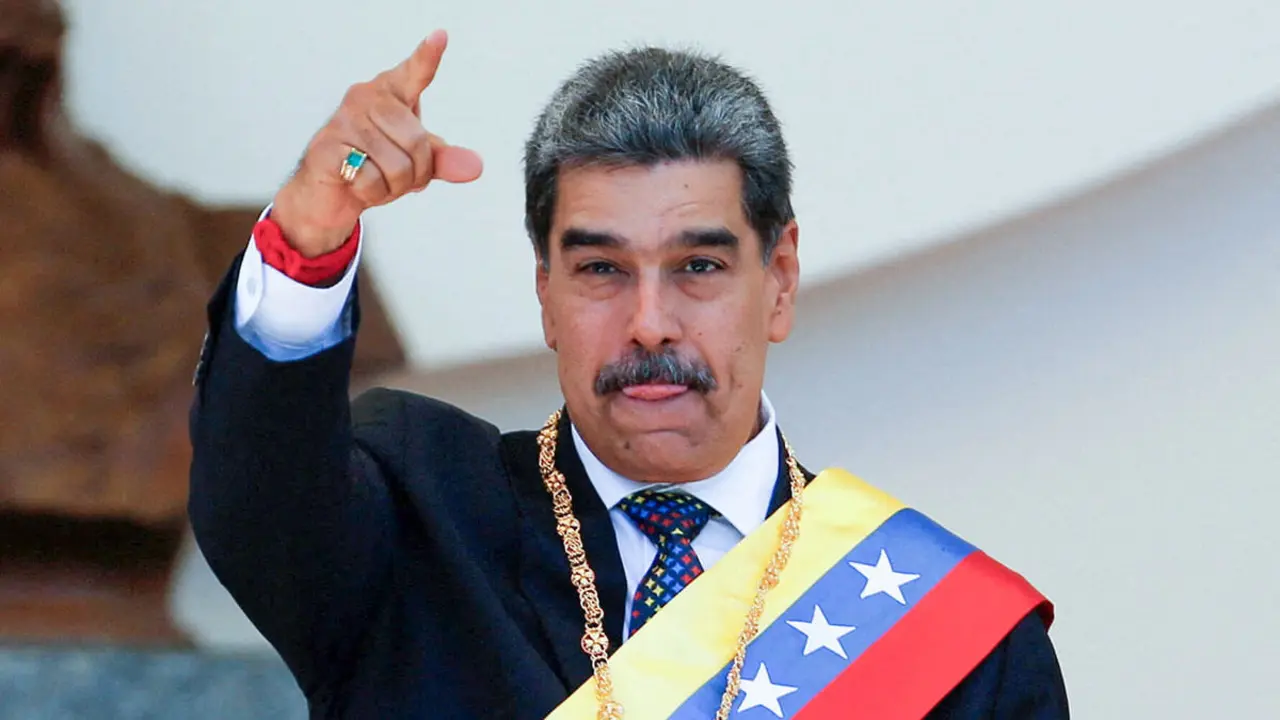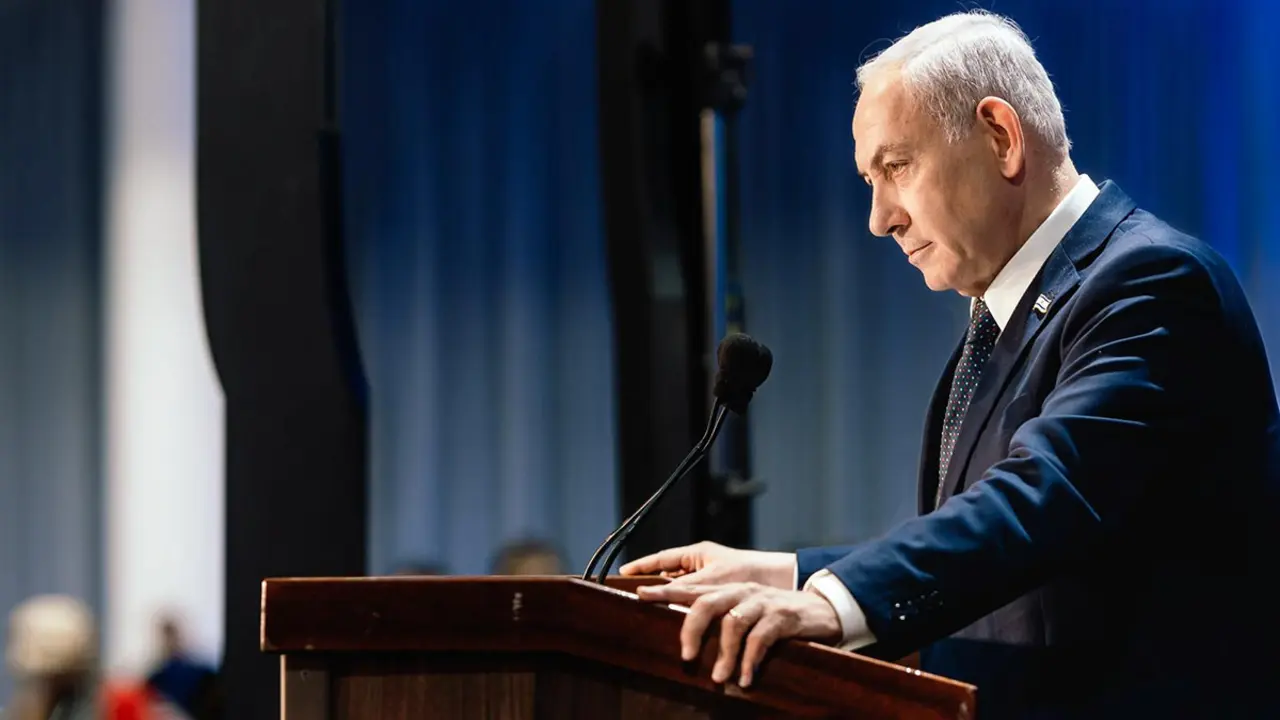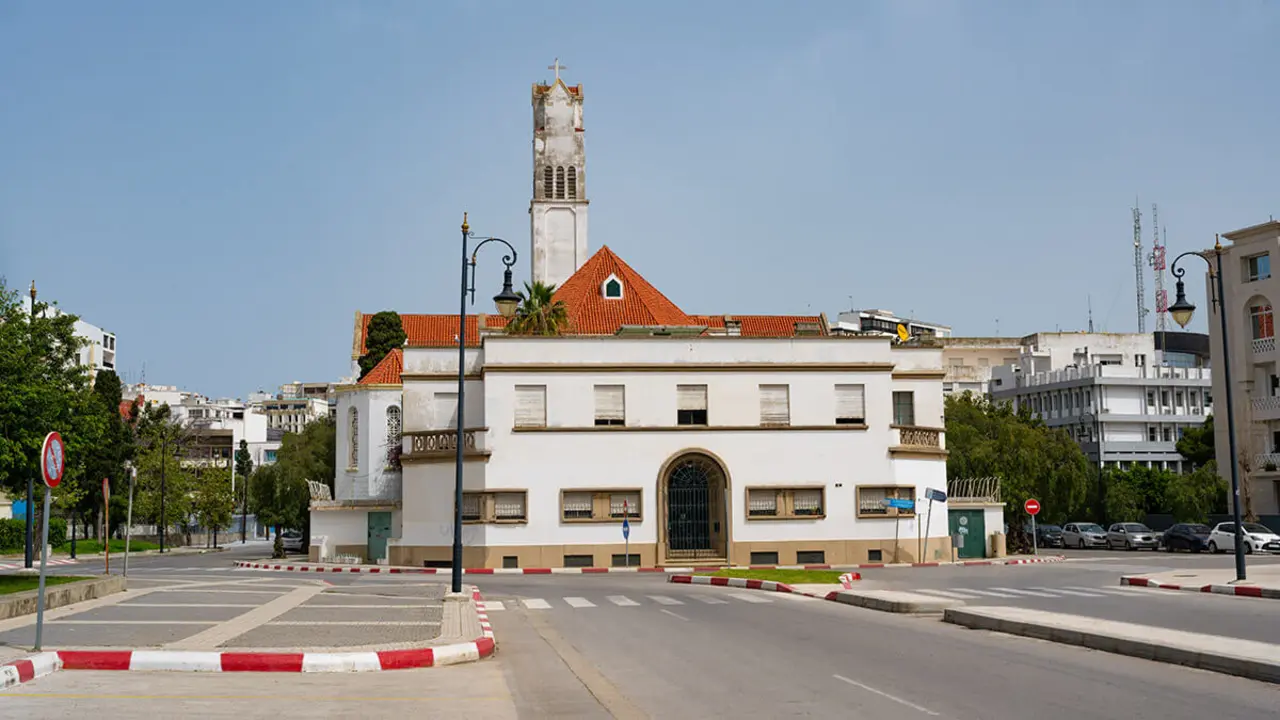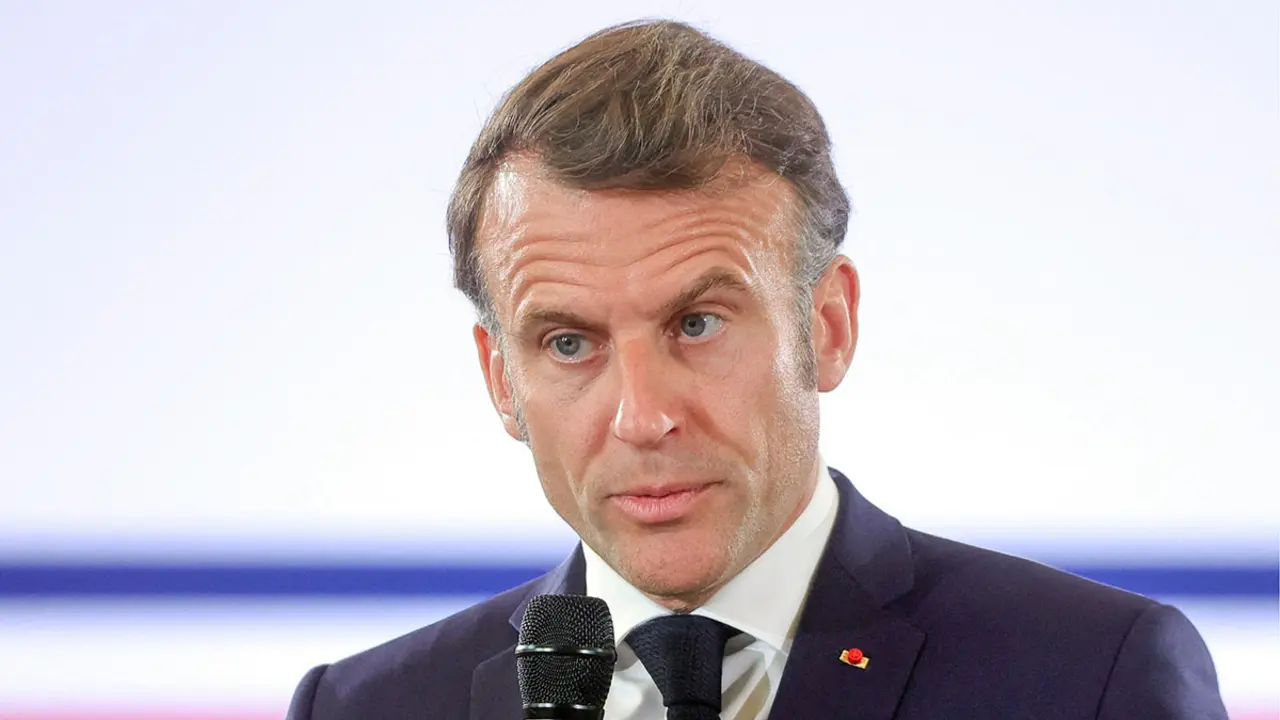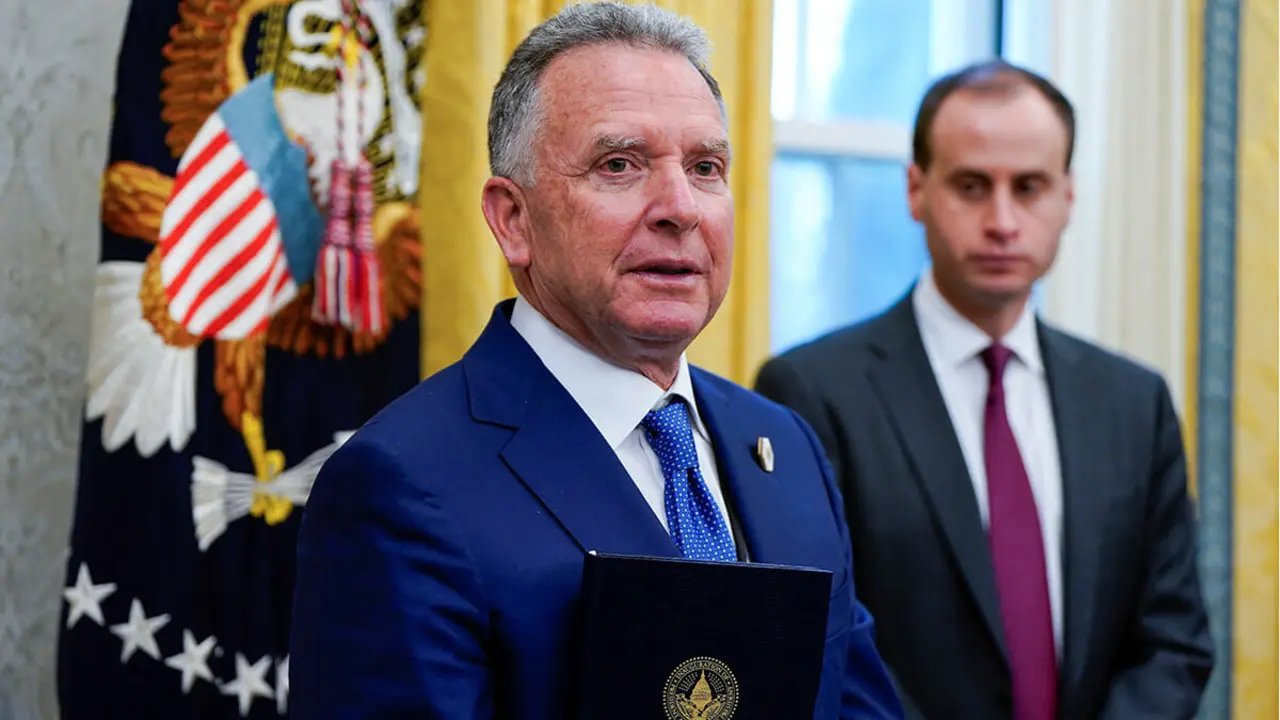The political philosophy of radical Islamists and jihadists is one man, one vote, one time only

International politics expert and analyst Gustavo de Arístegui offered the keys to the Moroccan understanding of the conflict between Israel and Hamas to Onda Madrid's "De cara al mundo".
Gustavo de Arístegui, who strongly condemns the terrible acts carried out by the extremist group Hamas on 7 October with the murder of more than 1,200 civilians and the kidnapping of more than 200 hostages, analyses the conflict, listing the possible consequences on a large scale and exposes the interests of both sides.
Mr. De Aristegui, I read an article of yours in La Razón, entitled "Escalada infernal en Oriente Próximo", and then I listened to your analysis on COPE about Hamas terrorists adopting the methods of Daesh, exhibitionism and extreme brutality. What can we expect from the situation that has been created?
I can tell you that I think that where the second front is most likely to open up is on the northern front, because Hezbollah is de facto just another unit of the Iranian Revolutionary Guard. Iran uses it as it pleases. If it needs or believes it is in its interests to open the northern front, that is, from Lebanon into northern Israel, it will do so, and it will do so without the slightest scruple in order to distract and divide Israeli forces and ensure that the operation in Gaza will be much more complex and much more complicated.
In the West Bank, however, things are more nuanced. It is true that the contagion effect was already visible on the first day with excessive and disgusting reactions of enthusiasm and celebration, in the Jenin refugee camp, although they do not have the same iron glove as Hamas has in Gaza, Fatah has a pretty good grip on what it controls, which is very little, in the West Bank. And I don't think it will be easy for that enthusiasm to catch fire.
What might happen are isolated actions near Israeli settlements in the West Bank or some attempt to infiltrate into Jordan to attract attention. Beyond that, a generalised uprising in the West Bank seems unlikely. It is true that, a week after all this, there have been analyses of reactions and sociology in different Arab countries and many expected isolated reactions, an incendiary contagion of Arab public opinion in different countries in the region and the Maghreb. However, when one does a small survey or reads the polls that have been conducted in different media in the region, one realises that there are mixed feelings, much more so than in previous crises in Palestine.
What has been the reaction in Morocco?
In many Maghreb countries, for example, in Morocco itself, many people from the working classes, from the working classes, have been really disgusted by Hamas's terrorist actions. And they have expressed this. There is solidarity from the Palestinian people and whenever there has been any kind of serious incident, confrontation, confrontation in the region, Palestinian flags appear in different public acts or statements by political leaders. But this time the acts have been so bestial, so monstrous, so abject, that the reaction here in Morocco has been extraordinarily harsh against Hamas for the most part, a fact that is also happening in different places.
🔴Comunicado: El Reino de Marruecos expresa su profunda preocupación tras el deterioro de la situación y el desencadenamiento de acciones militares en la Franja de Gaza y condena los ataques contra civiles dondequiera que se encuentren. pic.twitter.com/GhJLEGJeXk
— Diplomacia_marroquí 🇲🇦 (@DiplomaciaM) October 7, 2023
What is the situation in neighbouring countries such as Jordan and Egypt?
We have to remember what is happening with countries that we can call "the old rockers" in relations with Israel, Jordan and Egypt. Jordan and Egypt, Egypt since '79 and Jordan since '93, maintain full diplomatic relations with very frequent ups and downs. In the case of Jordan, the situation is even more delicate because we know that a very large part of the population, who have Jordanian passports, therefore, what people say that Jordan never gave passports to the Palestinians, shows an alarming lack of knowledge of the region because 60%, if not more, of the Jordanian population entitled to its nationality is of Palestinian origin, therefore, it would be impossible for them to be Jordanians if they had not been granted nationality at the time.
There are many, many hundreds of Palestinians who have Palestinian refugee papers who live in Palestinian camps or even in normal towns, but who in the past have had the opportunity to speak out in an inflammatory manner against incidents in the Palestinian territories and in Israel on a regular basis and generally have not done so. In other words, Jordan has been able to handle that situation really well.
On the other hand, they have a public opinion problem. They are neighbours of Israel, they are neighbours of the Palestinian territories and yet they know perfectly well how to modulate when to make a cold peace and when to make a hot peace because they have gone through stages of very hot war. Exactly the same applies to Egypt, but this time with a very important nuance. Egypt only opened the humanitarian corridor under pressure from the United States. They were not willing to do that at all because one should not forget that the worst enemy of Al-Sisi, the president of Egypt, is the Muslim Brotherhood. The Muslim Brotherhood is the parent organisation of Hamas and if there is one terrorist group in the world that Al-Sisi detests, it is Hamas. The last thing Al-Sisi wanted was to see how disguised penetrations by Hamas terrorists could take place through the civilian population fleeing into Sinai.

Why did Hamas launch this terror action?
There had been negotiations. Iran had restored relations with Saudi Arabia. Saudi Arabia was about to establish relations with Israel under the Abraham Accords. Perhaps Hamas was isolated because I remembered that there have been no elections in Palestine since 2006. Therefore, the legitimacy or representativeness of Hamas among the Palestinian people is more than questionable because they have always maintained an iron dictatorship. And it seems to me that if elections had taken place in Gaza, if elections had been held, Hamas would have had a very difficult time winning them.
To quote Edward Yerjian, who was assistant secretary of state for the Middle East at the US State Department and later US ambassador to Israel: "The political philosophy of radical Islamists and jihadists is one man, one vote, one time". In other words, for Hamas that one time has already happened. In 2006 they won and now they don't want to go back to the elections because they have already legitimised themselves once and for them it is the tactic of the landing gear. They get into power and close the door behind them and no one will ever get into power again. That is how they see themselves.
I am deeply shocked to have heard in the extreme left-wing media political leaders who have had very high responsibilities in Spain say that Hamas is a political party and that describing it as a terrorist group obeys the spurious interests of a group of countries and a group of interests. Beheading 40 babies, murdering 1 500 people, raping women, indiscriminately murdering the attendees of a music festival.

How can these acts be described?
That is despicable, cowardly and disgusting terrorism. Hamas had not made any inflammatory statements for exactly two years. To the extent that Israel's intelligence and security services had been overconfident, it was because they thought it was in Hamas's interest that there should be no escalation.
The escalation was going to happen and it was obvious because, first, the Egyptian intelligence and security services had warned about it, although now the prime minister of Zeeland is denying it at the moment, but it seems to be confirmed at the moment that, at, let's say, second or third level, that warning did take place. Secondly, this is not independent of Hamas, it is not Hamas that decides "oh, I'm going to do this now". Hamas has very clear international constraints.

How could a terrorist organisation like Hamas surprise Israeli intelligence systems? Is there a possibility that Hamas had the support of third countries with high interests in the region?
The most obvious is Iran. Hamas is economically and operationally dependent on Hamas. It is Iran that has managed to arm and rearm Hamas through various illegal and extremely secret channels, but also Russia. The constant presence of senior Hamas leaders in Moscow has been proven by verified sources. Most recently Ismael Janille, for example, as revealed by Colonel Kemp in US Israeli media, and reiterated ad nauseam of late. Also, the presence of the Revolutionary Guard, well, the presence of the Revolutionary Guard in Lebanon, we could say that the Iranian Revolutionary Guard lives in Lebanon and Hamas is just another division of the Iranian Revolutionary Guard.
There was a meeting there where Hezbollah, the Iranian Revolutionary Guard, and the Hamas top brass were there, where they were given intelligence, information and helped to plan. But military experts say that the operation was so sophisticated that even for the Iranian Revolutionary Guard it was too sophisticated to be done by the Iranian Revolutionary Guard and Hamas alone. That there had to be another hand there.
Many point to Russia's own hand. It is precisely Russia's international interests that are at stake here. It was interested in a diversionary manoeuvre from what is happening in Ukraine. It was interested in opening a new front to empty Western arsenals, Ukrainians are being attacked, and to generate a new tension to divert Ukraine's aid to another war front. On the other hand, there is Iran, which was finding that the closing of the circle of reconciliation around Israel by the most influential and important Arab countries, without much concern for what was happening in the Arab-Israeli conflict, was intolerable to them, because it deprived them of a key element of influence in the region.
Once that circle was closed with an agreement to establish full diplomatic relations between Saudi Arabia and Israel, it would have weakened Iran's position in the region dramatically. It would also have weakened Hamas's ability to manoeuvre in the Arab-Israeli conflict. Because if Saudi Arabia opened diplomatic relations with Israel, the condemnation it has made now, which has been quite strong and quite vocal, that would not have happened. It would have reacted exactly as Baja Hino has reacted to the United Arab Emirates, who have laid the criticism on Hamas, saying it was repugnant terrorism. But at the same time, and intelligently, the UAE, in addition to being unequivocal in condemning this repugnant terrorism, has opened the tap of direct humanitarian aid to Gaza. Protests in the Arab world have not yet taken place. It is true that the ground offensive has not yet taken place, and we will have to see what happens after the ground offensive.

At the reception on 12 October, His Majesty the King commented that he had called the President of Israel, to whom he had shown all his support, all kinds of condolences, condemnation and so on. But he also asked him for a certain restraint, a certain proportionality, among other things, so that the Hamas terrorists cannot once again show off and blackmail with the Palestinian dead, always against Israel. We will have a response from Israel, despite all that has happened and all that has been suffered, with a certain intelligence in order to prevent a reversal of the image that is now in the picture, and the reality that we have experienced in recent days.
There are civilian victims who are those who are in buildings marked by Israeli intelligence as military targets and Hamas does not let the civilians who are there out of the building, in order to guarantee that there will be civilian victims and to show them off as an excessive response by Israel. TV pictures show how Israeli fighter missiles have knocked down one building and the one next to it has been left completely intact. So far they are being very surgical. It is well known that Hamas has been using Palestinians as human shields for years, placing rocket launchers in schools, clinics, hospitals, recreational centres or residential buildings, or placing offices and maintenance and control centres in residential buildings. It is common knowledge that most of Hamas's network is underground. They have been digging tunnels for decades and the network of tunnels under Gaza is extraordinarily intricate. Therefore, Hamas leaders are well protected in their bunkers and expose the Palestinian population above ground to the risks, precisely so that they can have the excuse before the whole world of an excessive response.

What challenges will Israeli troops face?
Now, the ground operation has many challenges. First, which units are going to carry it out? First the elite units will go in, obviously the IDF reconnaissance units, which have a lot of prestige in the area, which are units, even if they are war dog units, they are units with a lot of prestige in the world, which will search for the hostages in different hiding places, and then the regular units will go in. They will divide Gaza into different zones, into at least one or two, that is to say, cutting lines to surely cut Gaza into at least three pieces. The images of absolutely barbaric, savage terrorism, the exhibitionism of bestiality, as you said the other day, this has made Hamas equate with Daesh in the minds of a very large majority of world public opinion, which is a setback and a turning point in their propaganda battle, which is going to be very difficult to reverse.

